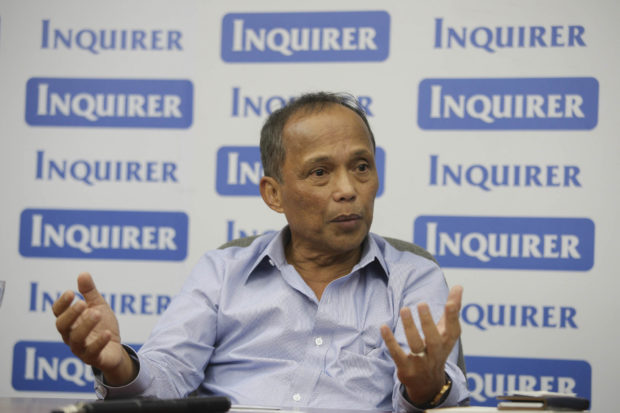If plans do not miscarry, jeepneys and buses, and, perhaps, cars will run on cheaper diesel from Russia.
Presidential spokesperson Harry Roque on Tuesday said that at least two petroleum companies had offered to sell Russian diesel to cushion the effects of spiraling pump prices in the country.
“I’ve talked to at least two companies — Petron and Phoenix. Mr. Ramon Ang and Mr. Dennis Uy said if we are able to import cheap diesel, they will sell it more or less at the price that we’re able to import it, plus administrative cost,” Roque said in Bontoc, Mountain Province.
Series of increases
Since January, a series of price increases has raised to P10.32 per liter the cumulative rise in gasoline prices, to P10.36 per liter for diesel and to P10.66 per liter for kerosene.
Last week, Malacañang announced that the government would be importing oil from Russia, which is not part of the Organization of the Petroleum Exporting Countries (Opec).
Opec and non-Opec countries, including Russia, continue to raise prices through reduced output as part of an agreement that they forged in late 2016.
The agreement was part of efforts to “rebalance” global demand for oil with supply. Since then, crude prices have increased steadily and briefly breached the $80 per barrel mark for Brent crude earlier this month.
Earlier, Roque said the decision to import oil from Russia was an order of President Duterte, as the latter was not numb to the plight of consumers.
The government is still studying if the imported diesel from Russia will undergo additional reprocessing in Singapore before it can be used in the Philippines.
Roque assured the public that even with reprocessing costs in Singapore, the diesel from Russia would be “a lot cheaper than current prices of diesel.”
He added that the Department of Energy, through Energy Secretary Alfonso Cusi, had confirmed that Philippine National Oil Co.-Exploration Corp. (PNOC-EC) had begun the importation process.
National oil reserve
Cusi on Tuesday said the government was also gearing up for a national oil stockpile of refined petroleum products because of surging world crude prices.
The World Bank’s forecast as of April put crude prices averaging at $65 in 2018 and 2019.
“The government is aware of the country’s vulnerabilities to abrupt changes in the international oil situation and impending threats,” Cusi said in a statement.
“Hence, we are formulating various strategies to address those vulnerabilities to cushion the impact on our consumers,” he said.
Cusi, an ex-officio chair of PNOC-EC, said the state firm was preparing for oil trading and retail “to provide competition to existing oil industry players and pacify domestic oil prices.”
In particular, PNOC-EC has been directed and authorized to buy fuel like diesel from Russia and non-Opec members.
Oil refiners like Petron and Pilipinas Shell are required to maintain a minimum inventory equivalent to 30 days’ supply of crude and products.
Nonrefiners are required to keep a stock good for at least 15 days of diesel, gasoline and kerosene, as well as seven days’ worth of liquefied petroleum gas.
Cusi said the creation of a strategic petroleum reserve was based on a number of international studies in 2003 and 2004.
But the Philippines did not build a stockpile as prices of crude and refined products plummeted a few years ago. —Reports from Julie M. Aurelio and Ronnel W. Domingo


